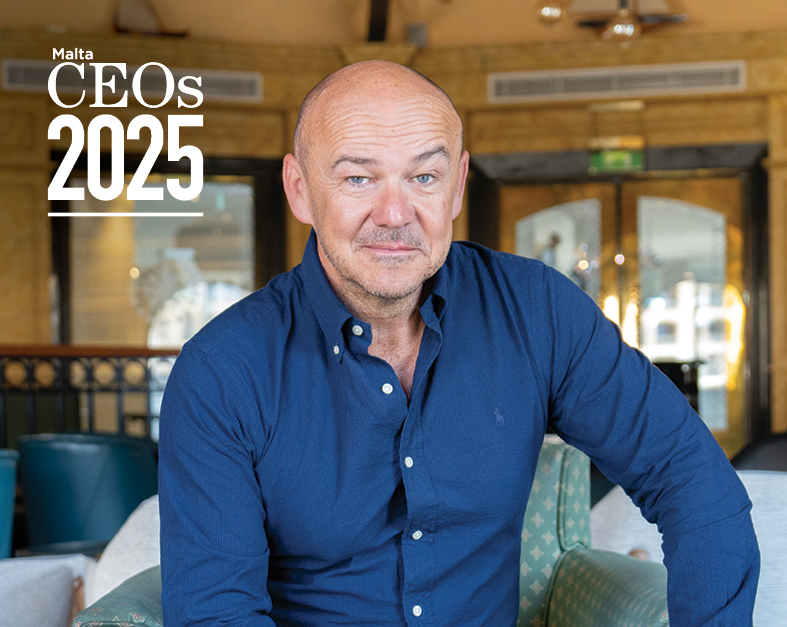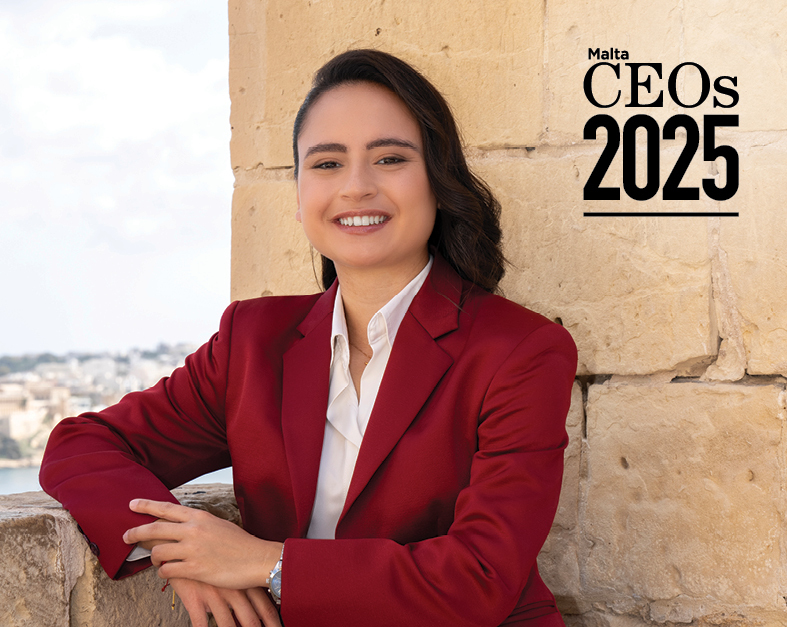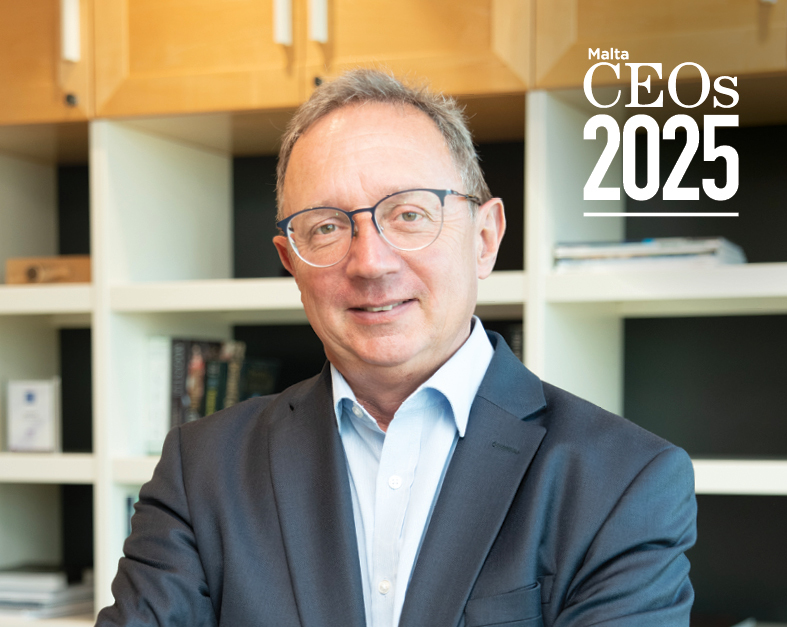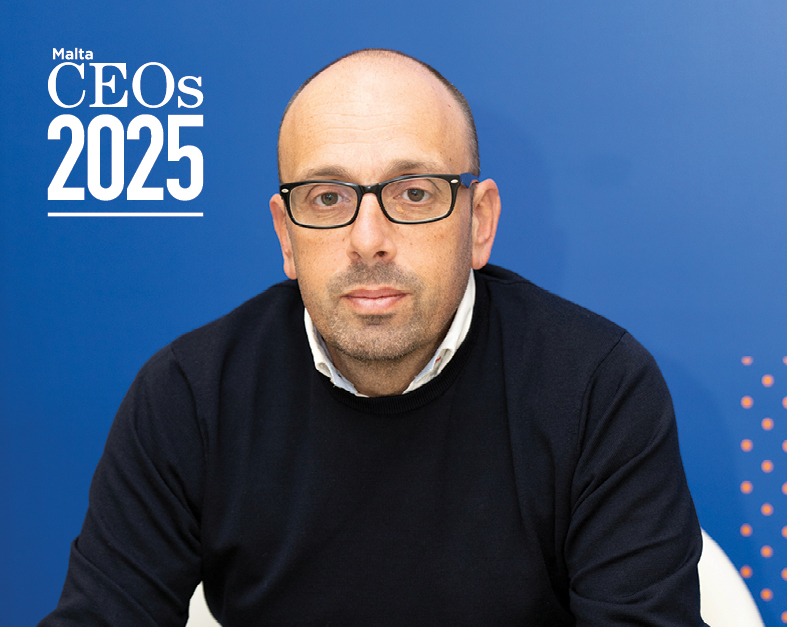After nearly three decades of establishing successful businesses in London since 1988, Peter Stroud opened a Malta office for IT solutions firm Future Generation Solutions in 2017, a company he had founded in the UK just six years earlier. Today, Peter is relishing his new second home on the island and looks forward to expanding the business’s offering.
It’s not the challenges that define you, but the opportunities you seek within those hurdles and the solutions you discover in the face of adversity. UK-native Peter Stroud, CEO of Future Generation Solutions (FGS), epitomises this business axiom, having thrived through both triumphs and trials. Indeed, it’s this resilience and his infectious energy that drive his strategy and leadership at the IT solutions firm, which serves the iGaming and financial services industries, and has offices in Malta and London.

“My goal is to harness what I’ve learnt over the years in this industry to guide those around me and help them achieve their best. I enjoy making a difference,” Peter affirms, his dynamic presence fuelling the conversation. “I want my staff to be better than me; I share my experience to help them grow and become more successful than I am. Hopefully, they’ll stay with the company and contribute to its continued success.”
Peter has been working in the IT sector since 1983 and establishing businesses in the UK since 1988, including Panacea Services, which was set up in 1992 to develop software and provide large-scale IT infrastructure to major companies. Over a period of almost 15 years, the company flourished, going on to employ almost 100 engineers across offices in London, Dubai and Amsterdam. “I sold Panacea in 2009, but just a year later, I was defrauded and lost everything I had made from the sale overnight. I went bankrupt. This was the defining moment of my career,” Peter recalls.
From the ashes, a new idea emerged – or rather, an initiative to consolidate the lessons learnt from his time steering Panacea. “I made many mistakes during that period, and I knew what to do differently. You never get everything right, but I knew the IT business well and how to start from scratch,” Peter explains. In 2011, FGS was founded to provide bespoke computing and digital solutions to regulated industries in the UK. Just six years later, in 2017, with Brexit looming, Peter opened another office in Malta, an EU jurisdiction. “This is one of the company’s biggest milestones, and I’m incredibly proud of it. I initially came over to visit the country, but when Brexit happened, I saw that the island boasted a vibrant economy and recognised an opportunity for expansion.” Indeed, Peter’s passion for Malta has led him to place roots on the island, and, this year, after acquiring residency, he will be moving to the country permanently.
Today, the company employs 20 staff across both sites and “is very structured, very process-driven,” boasting some big-name clients in the iGaming sector in Malta. “We understand regulated industries; while technology has evolved since the beginning of my career, the core principles of audit and accountability have remained unchanged,” he continues. With the knowledge accumulated over the years, Peter asserts that the company can address each client’s specific needs. “We create bespoke software and provide major hardware. However, we’re not just a provider where you select an off-the-shelf solution for specific IT needs like data management or digital infrastructure. We engage with our clients, ask the right questions and tailor our approach. I always tell my team: you’ve got to be known, liked and trusted.”
Peter’s day-to-day starts with a company meeting at 10am. “This might last a minute or half an hour,” he says, “but everyone needs to understand what the team is doing and what’s in the pipeline.” Peter is very hands-on, working closely with the sales team to ensure they are up to speed on the latest approaches and technologies, including those already in use by FGS’s clients. “We offer our clients the full range of options, explaining the benefits of each product and service, with the sales team taking a leading role. As specialists in these industries, we stay current with all developments.”
Peter acknowledges the personal challenges associated with his role: “I tend to want things to happen quickly and expect people to prioritise issues immediately. But I have tried to tone down this urgency, knowing it can lead to frustration, though it’s been a difficult adjustment.” However, opening an office in Malta has had a positive impact on Peter personally. “Over the past few years, I’ve focused on two main things: my kids, who are 14 and 15 – whom I try to spend as much time with as possible – and establishing the office here. This is my safe space. I worked in London for almost 40 years, where I wouldn’t necessarily recognise anyone, and they wouldn’t recognise me. But here in Malta, I know people and engage with them – that’s everything to me.”
He does, however, have some qualms about the island. “Malta benefits from a very stable economy, but real estate is too expensive, opening a bank account can still be difficult and wages are on the rise. For some positions in the IT sector, it’s more expensive to hire a Maltese person than someone living in London.”
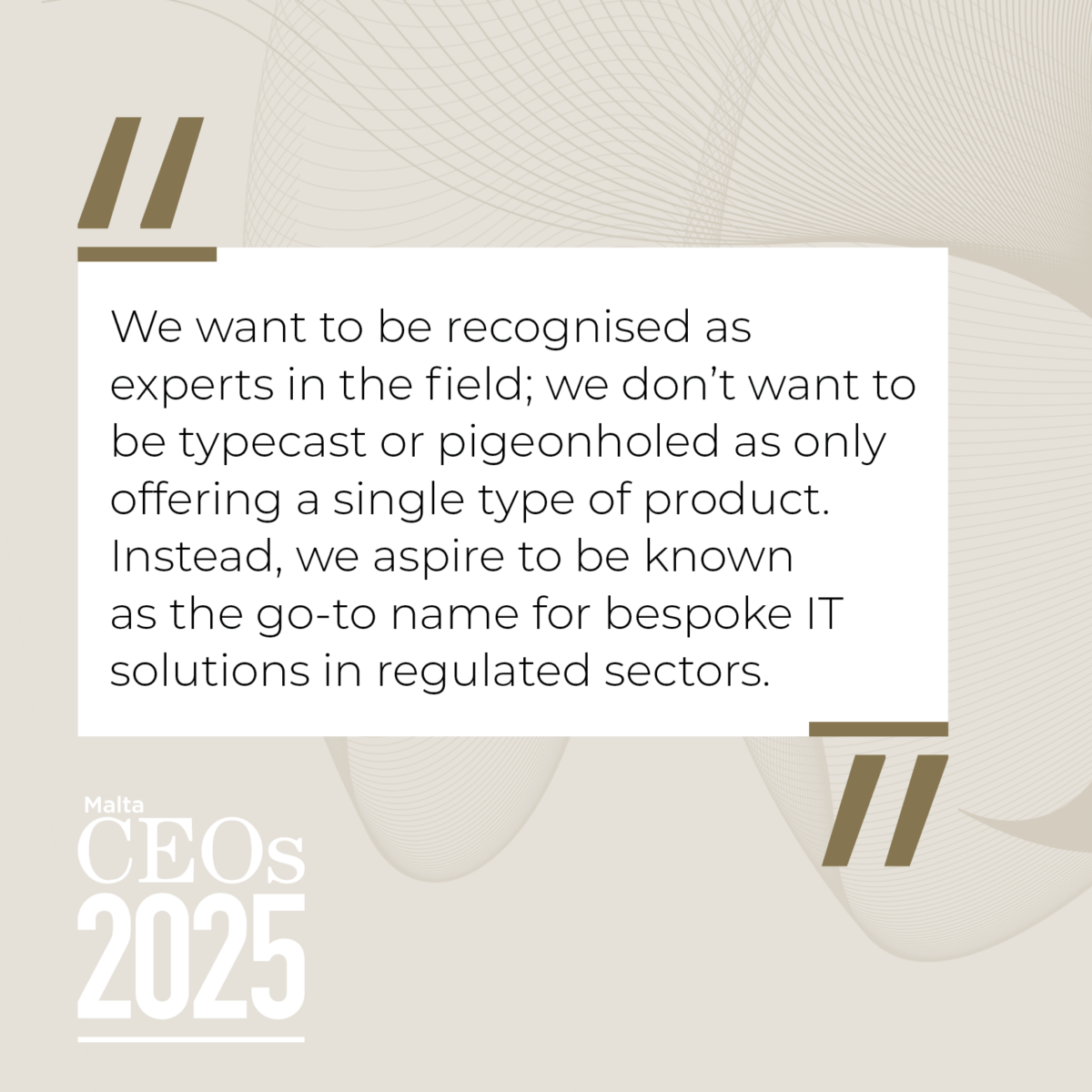
Switching tack, Peter discusses the firm’s progress in 2024. Last year, the company expanded into managed services and support to complement its IT infrastructure offerings. “When I was with Panacea in London, we guaranteed fixes within an hour across the city. We had every hardware part on hand. I didn’t realise, when I first came to Malta, that this is not the case here. It might take two weeks just to get a part in! So, we’ve invested around €2 million in equipment to ensure our clients don’t have to wait.”
This will continue to be an area of focus this year, along with a shift in business strategy over the next few months. “2025 is the year when we aim to broaden our offering to our existing clients. In other words, while in the first few years of the business, we primarily sold products and services that were small pieces of larger solutions, we now see opportunities to provide more assistance to our current customers, thus expanding within our established client base.”
Ultimately, he concludes, his goal is to ensure that FGS’s reputation evolves in tandem with its capabilities. “We want to become one of the top 10 HPE partners in both the UK and Malta. Currently, we’re ranked 19th, so I believe we can achieve this progress by the end of this year. We want to be recognised as experts in the field; we don’t want to be typecast or pigeonholed as only offering a single type of product. Instead, we aspire to be known as the go-to name for bespoke IT solutions in regulated sectors.”
This article is part of the serialisation of 50 interviews featured in Malta CEOs 2025 – the sister brand to MaltaCEOs.mt and an annual high-end publication bringing together some of the country’s most influential business leaders.
‘It’s unwavering persistence that drives breakthrough achievements’ – Manila Di Giovanni, DWorld CEO
'Our virtual economy hub will showcase Malta’s heritage, local enterprises, startups, and public institutions on the global stage.'
‘If you believe in what you’re trying to achieve, you’re already halfway there’ – Jordan Camilleri
The co-founder of Health & Co describes establishing and running a business as a life-long learning process.
‘We want to push the boundaries. We want to lead’ – AX Group CEO and Deputy Chairman Michael Warrington
His experiences working across various industries, have provided Michael Warrington with valuable insights into how AX Group's businesses are affected.
‘Technology changes so rapidly that what was agreed at the beginning of the year can change halfway through’ – Joseph Aquilina
The company never stops innovating and diversifying, which infuses different areas of the business with energy.


